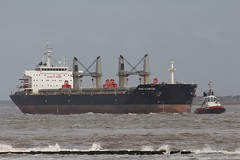Bush EPA nominee abandons insecticide-on-children study after Senate hearing
Saturday, April 9, 2005
Following a Senate hearing in which the Bush administration’s nominee for EPA administrator, Stephen Johnson, stoutly defended his plan to pay parents to document the effects on infants of insecticide use in the home, he reversed course and stopped the program.
Among the original requirements for the 60 families requested to be participants in the “Children’s Health Environmental Exposure Research Study” (CHEERS) study according to EPA were that they must:
- Live in Duval County, Florida
- Be a parent of a child under the age of 13 months
- Spray or apply or have pesticides sprayed or applied inside your home on a routine basis (You do not need to change your regular household routine for the study.)
This original version of the requirements can be viewed in the Internet Archive, a free online repository that creates copies of websites on a regular basis. The third requirement was reworded by November 2004, according to the Internet Archive: “Maintain your normal pesticide or non-pesticide use patterns for your household. We will not ask any parent to apply pesticides in their home to be a part of this study.”
According to the above document, the area of Jacksonville/Duval County was chosen for reasons of existing year-round high usage of pesticides and other household chemicals within the home, as well as relevant data from existing prior studies. The study involved researchers visiting the home of participants, parents videotaping their children’s activities with a supplied camcorder, children wearing a small “activity sensor”, and parents collecting food and urine samples for detailed analysis of the effects of chemical exposure to common commercially available chemicals, primarily pesticides, on which “current information… is very limited” [1].
Selection for the study began in fall 2004. As incentives for their participation in the planned two-year study, parents were to be given $970, a t-shirt, and other gifts, and would have kept the video camera at its conclusion.
Complaining that the study was necessary, Johnson yielded to two Democratic Senators who had threatened to block him, using all means available, from officially taking the helm of the Environmental Protection Agency, of which he is the acting head. The block on his nomination was lifted afterwards although some Democratic Senators would not say how they would vote on the final nomination.
Under his guidance, the EPA agreed to accept $2 million for the controversial $9 million CHEERS study from an industry trade group, the American Chemistry Council, which represents the chemical insecticide manufacturers. The study was to be conducted with the cooperation of the Duval County Health Department, and the US Centers for Disease Control and Prevention, based in Atlanta.
Senators Barbara Boxer (D-CA) and Bill Nelson, (D-FLA), demanded the cancellation of the study as proof of Johnson’s acknowledgement of what she called a “gross error in judgment”.
“The CHEERS program was a reprehensible idea that never should have made it out of the boardroom, and I am just happy that it was stopped before any children were put in harms way,” Boxer said. She added that testing on humans should not be a part of any United States environmental policy.
“I am very pleased that Mr. Johnson has recognized the gross error in judgment the EPA made when they concocted this immoral program to test pesticides on children,” Boxer said.
Work on the study was halted last November by Johnson while an independent review of the study’s design was conducted at his request. Part of the reason for the study’s current cancellation was what the EPA in its press release has termed “mischaracterization” of the nature of the study as though children were being deliberately sprayed with pesticides.
Johnson defended his approach, “I have concluded that the study cannot go forward, regardless of the outcome of the independent review. EPA must conduct quality, credible research in an atmosphere absent of gross misrepresentation and controversy. I am committed to ensuring that EPA’s research is based on sound science with the highest ethical standards.”
In November 2004, William Farland, an administrator with the EPA’s research department, told The Oregonian, “There’s no suggestion that we are asking them to use pesticides. We simply want them to continue to carry out their day-to-day activities.”

